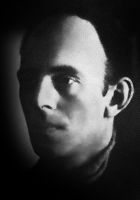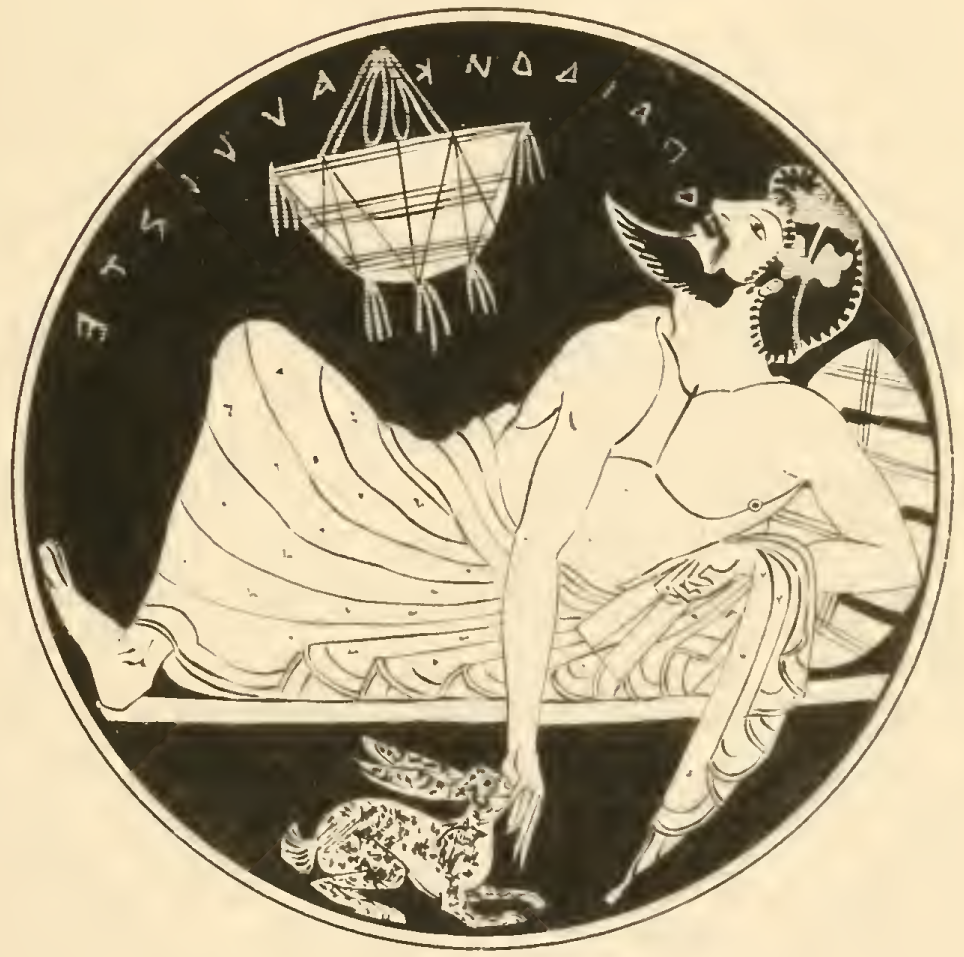What Dangerous Davies could teach Chris Trotter
I spent some of the coldest evenings of our Auckland winter under a duvet on the couch, watching The Last Detective, a British drama starring Peter Davison, the man who had the honour of being Doctor Who for a few years back in the eighties.
In The Last Detective, which ran for three series in the mid-noughties, Davison plays a well-mannered, well-meaning, well-read North London copper. Where many of his colleagues rely on computer databases to do their work, the man sarcastically nicknamed Dangerous Davies prefers more old-fashioned research methods. He reads yellowed newspapers, conducts interviews so lengthy and friendly that they might impress an oral historian, and isn't afraid to make the odd guess. Davies is assisted unofficially by his friend Mod, a working class autodidact played by the Irish comedian Sean Hughes. Mod spends much of his time in libraries, partly because they are warmer than his flat, and is forever supplying Davies with curious historical and literary anecdotes that may or may not be related to his investigations.
It is hard not to contrast Dangerous Davies and Mod with most of the crimefighters who turn up on television screens in the twenty-first century. Many telly shows treat crimefighting as a strict science. They show us crime scenes and bodies being analysed minutely by super-intelligent scientists, whose deductions lead them to villains. Even crime dramas that feature old-fashioned street detectives tend to give those cops extraordinary powers. In Unforgettable, a series that premiered on New Zealand screens this year, Poppy Montgomery plays Carrie Wells, a detective who can remember almost everything that happens to her. Wells dips into her memory files to solve crime after crime.
Unforgettable reminded me of Limitless, a 2011 film in which Bradley Cooper played a young man who took a drug which made his memory perfect. With access to billions of new pieces of information, Cooper was able to outwit both crooked financiers and Russian gangsters.
The Last Detective and Limitless might be intended as light entertainments, but they are worth taking seriously, because they symbolise two opposed views about how the human mind works.
Back in the middle decades of the twentieth century, the German philosopher Hans-Georg Gadamer made a distinction between judgement-based thinking and calculative thinking. Calculative thinking, which Gadamer associated with physics, sought to move ineluctably, by a series of deductions, from a body of evidence to a watertight conclusion about that evidence. Judgement-based thinking was looser and more improvisational, and relied on the use of a set of values - moral, political, aesthetic - to interpret evidence.
Gadamer was not completely opposed to calculative thinking, but he warned that it had severe limitations. The sort of precision that a physicist might achieve was not, he insisted, either possible or desirable in a field like biology or geology, let alone history or psychology or jurisprudence.
Gadamer criticised the tendency of some psychologists and philosophers to regard the human brain as a sort of computer. Computers are very good at storing and delivering information and at calculating, but they cannot make judgements.
Dangerous Davies is adept at the sort of judgement-based thinking which enthused Gadamer. He solves crimes with guesses, but his guesses are informed by his deep knowledge of the area where he works, his nagging sense of morality, and the haphazardly brilliant research of his friend Mod.
If The Last Detective is a celebration of judgement-based thinking, then a film like Limitless venerates calculative thinking. Under the influence of his drug, the hero of the film becomes a sort of supercomputer. The vast amounts of information he can suddenly access lead him swiftly and efficiently to precise and wholly correct conclusions. As he outmanoeuvres criminals and plays the stock exchange, he turns psychology, sociology and economics into precise sciences.
Limitless and Unforgettable might be entertaining, but they present us with a fundamentally false picture of the way that the mind works. They suggest that information equals intelligence, and that the more information we have the easier we will find it to understand the world. But information is only useful if we can interpret and evaluate it, and to do this well we need what Gadamer called a 'horizon', and what some psychologists call a schema - a view of the world informed by the sort values we develop through experience, reading, and reflection.
In recent years scientists have been fascinated by the story of a British woman who can remember all her experiences since the age of fourteen in perfect detail. Jill Price describes her condition as a 'curse', which has 'paralysed' her. She feels overwhelmed rather than liberated by her mind's vast memory file. In the real world, the hero of Limitless and the heroine of Unforgettable would likely feel the same way.
In the twenty-first century the calculative model of thinking and the notion that the brain is essentially a computer have become hegemonic amongst politicians, the media, and the general public. The popularity of National Standards in schools reflects this hegemony. National Standards assumes that children's minds are like computers, and that the role of teachers is to fill them with information. The more facts and figures children hold, the smarter they will be. The necessity of developing the sort of sophisticated mental 'horizon' that can help us interpret information sensitively is forgotten.
Our obsession with information and calculation is changing the way we think about intellectuals, as well as about schools.
The term 'intellectual' was first used early in the twentieth century in France, to describe the coalition of writers, teachers, and journalists which campaigned against the anti-Semitic persecution of Alfred Dreyfus. Like the Frenchmen and women who spoke in defence of Dreyfus, intellectuals in other countries quickly became identified with social engagement and public debate. They used their knowledge and their analytic skills to participate in debate with one another and with the rest of society.
The rise of the intellectual in the early twentieth century was associated with the democratisation of public discourse. Great twentieth century intellectuals like Jean-Paul Sartre, Bertrand Russell and EP Thompson spent as much time with trade unionists as academics. Their writings often reached huge audiences.
Although some intellectuals were academics or full-time men of letters, others were blue collar workers who had a passion for ideas and discussion. Richard Taylor and Len Richards have described the way that the Otahuhu Railway Workshops became, in the sixties and seventies, the 'working class university of New Zealand', as mechanics and sparkies formed study groups and held constant debates about social and political issues.
In the twenty-first century we increasingly associate intellectualism not with participation in public debate, but with a few superintelligent individuals with brains like vast computers. Today the world's most famous 'intellectual' is Stephen Hawking, a freakish, forbidding figure who works in an esoteric corner of science and has little or no interest in the sort of ethical and political issues which stirred Sartre and Thompson. For most of us, debating Hawking would be as unthinkable as racing Usain Bolt.
A recent column by Chris Trotter illustrates how pervasive the new model of the intellectual has become. Trotter claimed that his fellow Kiwis 'don't put a lot of stock in intellectualism', and complained about the lack of respect given to men like Professor Peter Gluckman, the Prime Minister's scientific advisor.
Peter Gluckman is a pediatrician who has published many papers about prenatal development. He won the Rutherford Prize for outstanding scientific research in 2001, and is highly regarded by his peers overseas.
In a recent guest lecture at Otago University called 'Setting Priorities for Science', Gluckman claimed that "emotion" and "politics" too often find their way into intellectual debate, and insisted that "Good science should be values-free". Using "fact" and avoiding both "opinions" and "polemic", scientists should provide society with the "knowledge upon which values are appropriately overlaid". Gluckman used the debate about genetically-modified food in the early noughties as an example of how politics can become illegitimately mixed up with science.
Gluckman used part of his lecture to complain about 'anti-intellectualism' in this country. But his complaint does not come from a nostalgia for the study groups of the Otahuhu Railway Workshops. As far as Gluckman is concerned, intellectual discourse should be the preserve of a scientific elite which knows how to steer clear of 'politics', polemic', and 'emotion'. Gluckman thinks that Kiwis are anti-intellectual because they are too keen on interfering in the debates of scientists.
Chris Trotter has written often and eloquently about the impact of neo-liberal capitalism on New Zealand. In column after column and blog post after blog post, he has shown how neo-liberal policies like the privatisation of state assets, anti-union legislation and attacks on the welfare state are an affront to democracy, because they give a few men and women in suits - corporate executives, and the bosses of commercialised state bureaucracies - an obscene power over other Kiwis.
But Chris apparently can't see that Peter Gluckman is the intellectual equivalent of the corporate executives he has criticised so often. Like his counterparts in the boardroom, Gluckman considers himself a member of an elite which is entitled to make decisions on behalf of the rest of the community. And Gluckman's intellectual jutsification for his elite status is just as unconvincing as the rhetoric of the neo-liberal suits. The invisible hand of the free market and values-free science are both ideological fantasies designed to protect vested interests.
If Chris wants to see a healthy model of intellectual inquiry, he should stop reading Peter Gluckman's speeches and take a look at The Last Detective.
[Posted by Maps/Scott]












.JPG)


.JPG)

.JPG)

.JPG)




.jpg)





